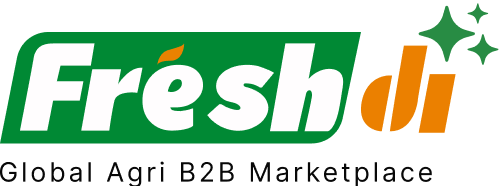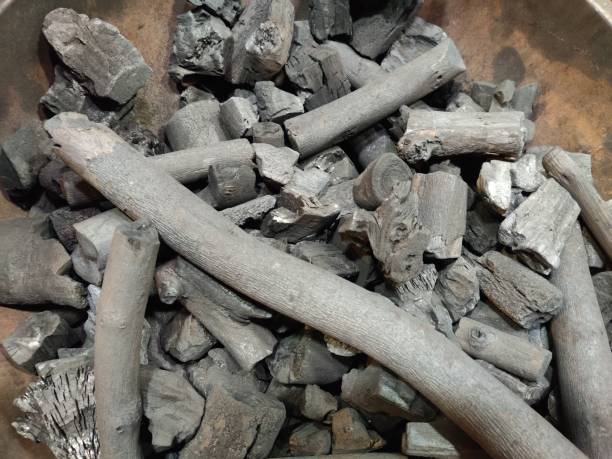Introduction – Understanding Germany’s Reputation for Quality Charcoal
When it comes to premium charcoal, Germany stands out as a symbol of precision and sustainability. With its rich forestry, advanced carbonization techniques, and strict environmental regulations, the country has carved out a serious reputation in the global charcoal market.
But why should businesses care about the “where” and “how” of charcoal production?
Simple: sourcing top-tier charcoal isn’t just about finding black lumps that burn—it’s about ensuring consistent heat, low smoke, safe ingredients, and eco-conscious origins. Especially if you’re selling to discerning barbecue enthusiasts or using it in industrial processes, the stakes are high.
So, let’s dig in and understand what makes German charcoal so special—and how to choose the best of the best.
Defining & Verifying Charcoal Excellence in Germany
Before we dive into the top suppliers, it’s important to know what makes charcoal “high quality” in the German context.
Key Quality Markers for Charcoal
Not all charcoal is created equal. In Germany, high-grade charcoal usually features:
- Fixed Carbon Content: The higher, the better. Premium charcoal contains 80% or more.
- Low Moisture Content: Less moisture means easier ignition and better burning.
- Minimal Ash Residue: Reduces cleanup and indicates purity.
- Uniform Particle Size: Ensures even combustion.
Certifications That Matter
Germany doesn’t mess around with quality control. The gold standards for charcoal include:
- EN 1860-2:2023: The European benchmark for barbecue charcoal, defining chemical and physical criteria.
- DIN-Geprüft & DINplus: Certifications offered by TÜV Rheinland via DIN CERTCO. DINplus, for example, demands:
- Max 4% ash content
- Min 80% fixed carbon
- No unwanted additives
These markings ensure the charcoal is safe, efficient, and environmentally sound.
Pro Tip: On platforms like Freshdi, RFQs often specify these certifications, helping buyers filter top products faster.
Regional Influence on Quality
Where and how charcoal is made also plays a major role.
- Hardwood vs. Softwood: German producers often use beech, a hardwood known for producing dense, hot-burning charcoal.
- Carbonization Techniques: Modern, controlled processes yield cleaner, more consistent batches.
- Sustainability Practices: Regions with access to FSC-certified forests often produce more eco-friendly charcoal.
Health and Environmental Safety
Some studies have revealed that poorly made charcoal can contain heavy metals or PAHs (polycyclic aromatic hydrocarbons), which are harmful if inhaled. Germany’s strict quality checks help minimize these risks, ensuring cleaner burn and safer usage.
Top 6 Verified Charcoal Suppliers in Germany – Leaders in Quality
These suppliers are not just popular—they’ve been vetted for their export performance, buyer satisfaction, certifications, and activity on international B2B sourcing platforms like Freshdi.
1. Blackwyse GmbH
- Specialty: Export-grade, premium-grade charcoal with FSC and DINplus certification.
- Strengths: Strong distribution network, responsive to RFQs, reliable supply chain.
- Freshdi Insight: Frequently ranked among top-responding suppliers for charcoal RFQs.
2. CarbOne Deutschland
- Specialty: Lump charcoal from sustainably harvested beechwood.
- Certifications: FSC, EN 1860-2:2023 compliant.
- Why It Stands Out: Known for low-ash, long-burning charcoal popular with grill masters.
3. GrillKraft GmbH
- Specialty: Premium charcoal briquettes for commercial and home use.
- Certifications: DINplus, ISO 9001.
- Freshdi Insight: High buyer ratings for consistent product quality and packaging.
4. BioFlamme Naturbrennstoffe
- Specialty: 100% natural charcoal made from agricultural waste and hardwood.
- Certifications: EU Eco-label, FSC.
- Why It Stands Out: Eco-conscious production and biodegradable packaging.
5. Deutsche Kohlewerke
- Specialty: Industrial-grade charcoal for metallurgical and chemical industries.
- Certifications: REACH, ISO, and custom safety audits.
- Freshdi Insight: Frequently appears in RFQs for specialty applications.
6. EcoBrennstoffe GmbH
- Specialty: Eco-friendly BBQ charcoal and briquettes.
- Certifications: FSC, DIN-Geprüft.
- Why It Stands Out: Transparent sourcing and carbon-neutral production processes.
Dynamic Ranking Note
Keep in mind, supplier performance is dynamic. Platforms like Freshdi often feature “Suppliers of the Month” or “Top Exporters of the Quarter,” highlighting businesses with outstanding service, quality, and responsiveness. Be sure to check the latest rankings before engaging.
Market Navigation – Trends in Quality Demand & Global Consumer Preferences
Let’s face it—today’s buyers are picky, and rightly so. Whether you’re supplying supermarkets, restaurants, or direct-to-consumer, quality and traceability are more important than ever.
Demand for Certified, Sustainable Charcoal Is Rising
Across Europe and globally, buyers are increasingly asking for:
- FSC-certified products
- DINplus or EN 1860-2 compliance
- Charcoal made from renewable or recycled biomass
- Low-emission carbonization processes
This isn’t just a trend—it’s becoming the new standard.
How Global Consumer Behavior Impacts German Charcoal
Consumers are more informed today, and they care about:
- Transparency: Where did it come from? How was it made?
- Sustainability: Is it responsibly sourced?
- Performance: Does it burn hot, clean, and long?
Germany’s suppliers, backed by rigorous standards, are well-positioned to meet these evolving demands.
Freshdi Tip: Use Freshdi’s RFQ filters to track which certifications and product specs are in highest demand this quarter.
Conclusion – Strategic Sourcing for Quality
If you’re in the business of charcoal—whether as a retailer or bulk buyer—you can’t afford to cut corners. Germany offers a robust network of suppliers who meet the highest global standards for quality, safety, and sustainability.
By understanding the key quality markers, certifications, and current buying trends, you’ll be better positioned to make smart sourcing decisions.
And remember, platforms like Freshdi don’t just connect you to suppliers—they help you verify certifications, compare quotes, and stay ahead of market trends.
Buyer’s Checklist: Sourcing High-Quality Charcoal from Germany
Before you hit “buy,” ask yourself:
- ✅ Does the product meet EN 1860-2:2023 standards?
- ✅ Is it certified by DINplus or FSC?
- ✅ Is the supplier responsive to RFQs and transparent about sourcing?
- ✅ Are you buying from regions known for premium hardwood charcoal?
- ✅ Can the supplier provide lab test data or certification copies?
- ✅ Have you compared supplier ratings and reviews on platforms like Freshdi?
Future Outlook: What’s Next for the German Charcoal Industry?
Looking ahead, we expect:
- Increased use of alternative biomass for charcoal production.
- Greater demand for carbon-neutral certification.
- Enhanced transparency through blockchain and traceability tech.
- More small-batch, artisanal charcoal offerings for niche markets.
As sustainability becomes more than a buzzword, German suppliers are stepping up to make charcoal cleaner, greener, and more efficient than ever.
How Freshdi Empowers Buyers in the Charcoal Market
Freshdi isn’t just another B2B platform—it’s a sourcing intelligence hub. Here’s how it helps:
- 🔍 Supplier Verification: Confirm certifications and past performance.
- 📈 Market Insights: Track RFQ trends, pricing changes, and demand spikes.
- 📤 Streamlined RFQs: Send detailed requests and compare multiple suppliers.
- 🌎 Global Access: Reach verified producers from Germany and beyond.
Whether you’re a new buyer or a seasoned distributor, Freshdi simplifies the path to quality.
References
- EN 1860-2:2023 Standards Article – Springer
- DINplus Certification – DIN CERTCO
- Environmental Contaminants in Charcoal – MDPI
- Germany Charcoal Market Outlook – 6Wresearch
FAQs
1. What is the best type of wood for charcoal production in Germany?
Hardwood like beech is preferred because it produces hotter, longer-lasting charcoal with less ash.
2. How can I verify a charcoal supplier’s certification?
You can ask for documentation or use platforms like Freshdi where verified suppliers display their certifications.
3. What does DINplus certification mean for charcoal?
It means the charcoal meets strict quality standards, including high carbon content and low ash and moisture levels.
4. Is German charcoal environmentally friendly?
Yes, especially when it’s FSC-certified and produced using sustainable methods.
5. Can I request custom charcoal specifications from German suppliers?
Absolutely. Most top suppliers on platforms like Freshdi accept RFQs with specific quality and packaging requirements.


